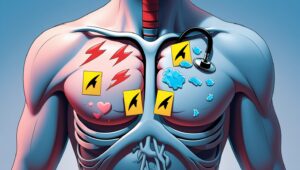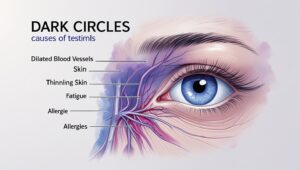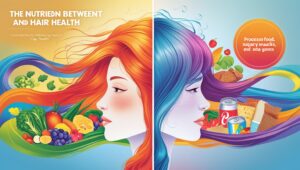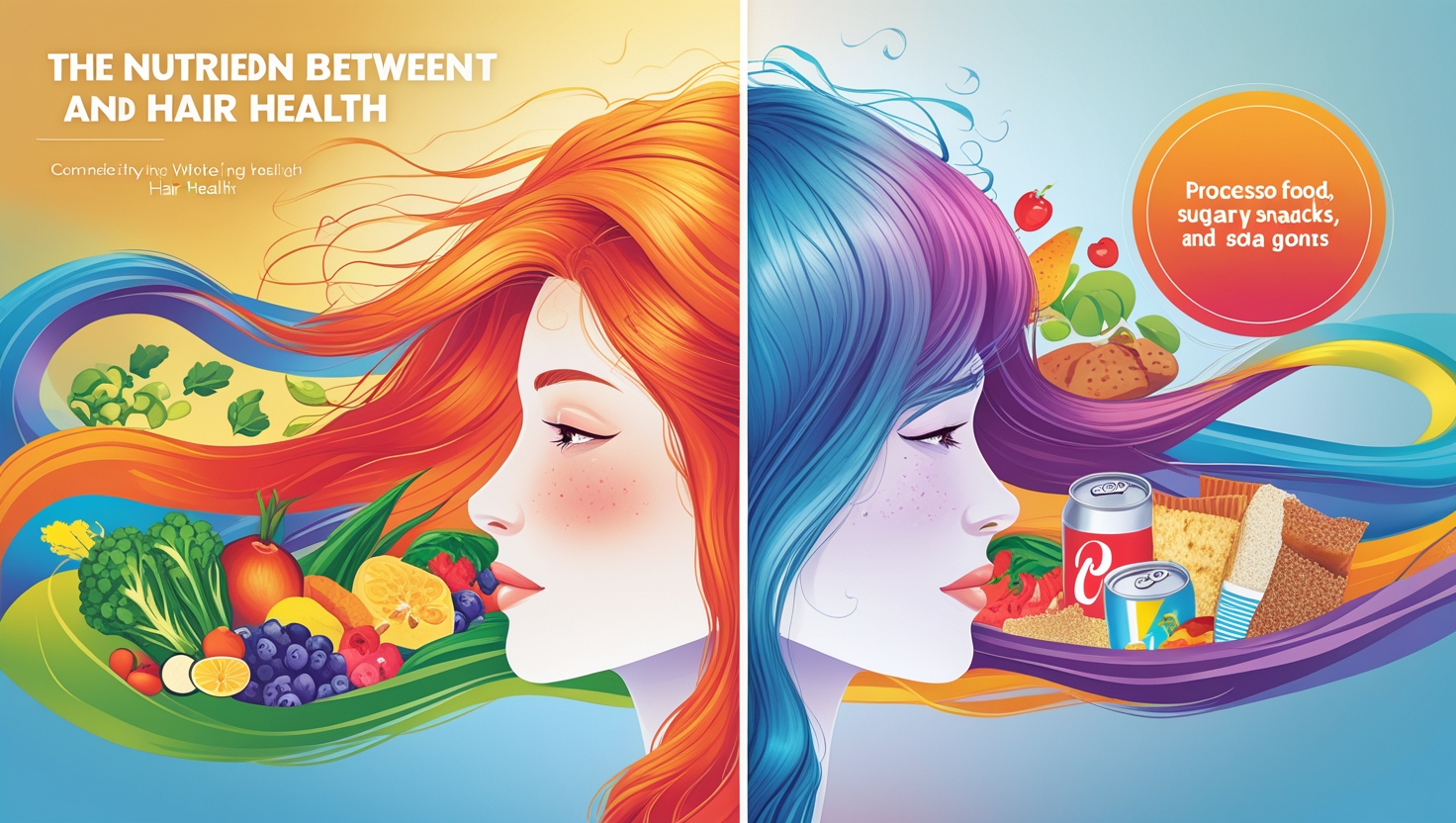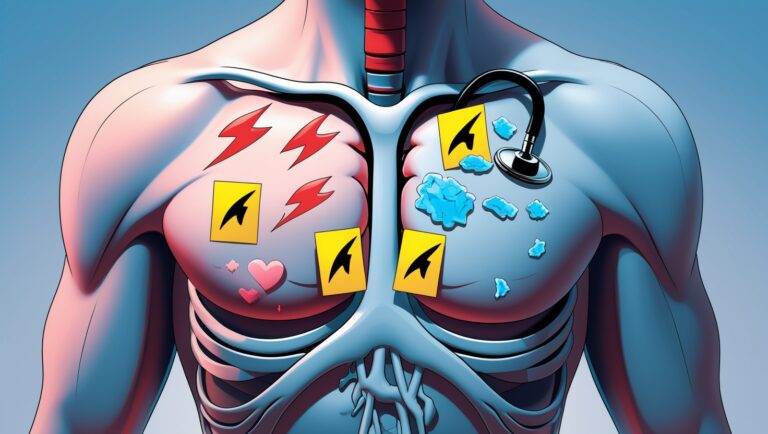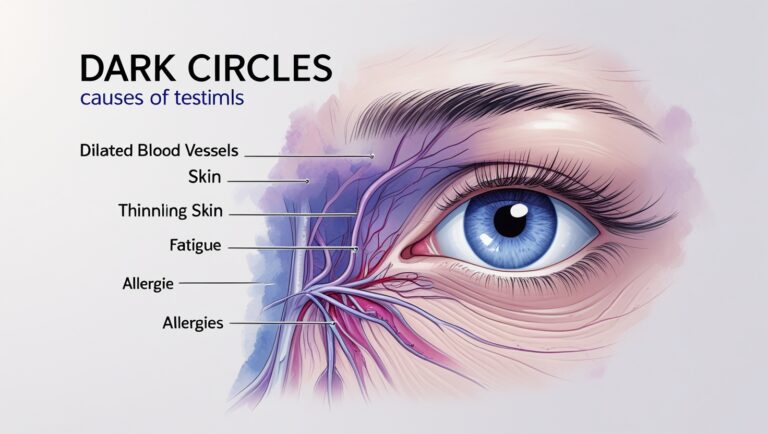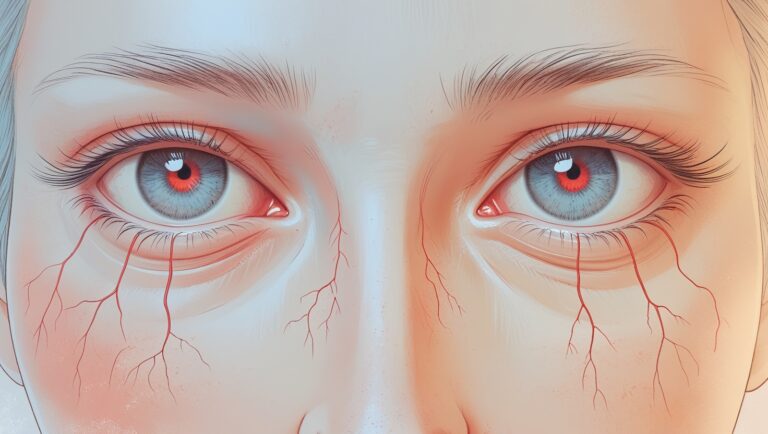Table of Contents
- Introduction
- The Link Between Diet and Hair Health
- Essential Nutrients for Healthy Hair
- Foods That Promote Hair Growth
- Nutritional Deficiencies and Hair Problems
- Diet Trends That Might Harm Your Hair
- Scientific Insights: What Research Says in 2025
- Real-Life Examples: How Changing Diet Helped Hair Health
- Tips for a Hair-Healthy Diet
- Supplements: Should You Take Them?
- Final Thoughts and Actionable Advice
1. Introduction
Have you ever wondered why your hair feels thinner, drier, or duller some days? While genetics and hair care routines matter, what you eat plays a major role in the strength, growth, and shine of your hair. In 2025, with more people focusing on holistic wellness, diet is being recognized as a powerful factor for hair health.
In this guide, you’ll learn how your daily meals affect your hair, what nutrients are essential, and what you can do right now to improve your hair naturally from within.
2. The Link Between Diet and Hair Health
Hair is one of the fastest-growing tissues in your body, and like every other part, it needs fuel to grow. Nutrients from food supply the building blocks for healthy follicles, scalp function, and hair growth cycles.
When your diet lacks essential vitamins and minerals, your hair is often the first to show signs. This is because your body prioritizes vital organs over hair production when resources are limited.
3. Essential Nutrients for Healthy Hair
Protein
Hair is primarily made of keratin, a type of protein. Without enough dietary protein, hair becomes weak and may fall out.
Sources: Eggs, chicken, beans, lentils, quinoa
Iron
Iron helps red blood cells carry oxygen to your cells. Low iron = poor circulation to the scalp.
Sources: Spinach, red meat, lentils, pumpkin seeds
Omega-3 Fatty Acids
Omega-3s nourish the hair follicles and keep your scalp hydrated.
Sources: Salmon, walnuts, chia seeds, flaxseeds
Vitamin A
Encourages healthy sebum production on the scalp, which prevents dryness.
Sources: Carrots, sweet potatoes, kale
Vitamin D
Low vitamin D has been linked to hair loss, especially alopecia.
Sources: Sunlight, fortified milk, mushrooms, fatty fish
Biotin (Vitamin B7)
Known for supporting keratin production and strengthening hair.
Sources: Eggs, nuts, seeds, whole grains
Zinc
Zinc plays a crucial role in tissue growth and repair, including hair follicles.
Sources: Oysters, chickpeas, cashews
Vitamin C
Boosts collagen production and helps with iron absorption.
Sources: Citrus fruits, bell peppers, strawberries
Water
Hydration is often overlooked. Dehydrated hair becomes brittle and prone to breakage.
Tip: Drink at least 2–3 liters daily for hydrated hair and scalp.
4. Foods That Promote Hair Growth
Best Plant-Based Options
- Lentils
- Spinach
- Sweet potatoes
- Nuts and seeds
- Avocados
Best Animal-Based Options
- Eggs
- Salmon
- Greek yogurt
- Chicken
- Liver (rich in iron and B vitamins)
Superfoods for Hair
- Berries (rich in antioxidants)
- Seaweed (iodine and minerals)
- Chia seeds (omega-3s and fiber)
5. Nutritional Deficiencies and Hair Problems
Hair Thinning
Often caused by protein, iron, or zinc deficiency. Common in restrictive diets.
Hair Loss (Telogen Effluvium)
Triggered by rapid weight loss, illness, stress, or extreme calorie restriction.
Brittle or Dry Hair
Linked to inadequate intake of omega-3s, vitamin E, and water.
6. Diet Trends That Might Harm Your Hair
Crash Diets
Sudden calorie cuts shock your system. Hair growth slows or stops to conserve energy.
Keto Diet
Low-carb diets may lack important vitamins unless carefully balanced.
Vegan/Vegetarian Diets (if unbalanced)
Risk of B12, iron, and omega-3 deficiency without proper supplementation.
7. Scientific Insights: What Research Says in 2025
Recent studies continue to confirm that:
- Iron and vitamin D are the most common deficiencies in people with hair loss.
- People eating whole-food, balanced diets report stronger, shinier hair.
- Biotin helps only in those with actual deficiencies; unnecessary supplementation shows no added benefit.
Sources: 2025 Journal of Dermatology, International Trichology Association
8. Real-Life Examples: How Changing Diet Helped Hair Health
- Nina, 34, vegan: After supplementing with B12 and iron, her hair fall reduced in 3 months.
- Raj, 28, gym enthusiast: Switched from protein shakes to whole foods like lentils and eggs—saw visible improvements.
- Lily, 45, post-menopause: Added vitamin D and flaxseed oil; her dry scalp improved significantly.
9. Tips for a Hair-Healthy Diet
- Eat the rainbow: More colors = more nutrients
- Balance your macros: Include carbs, fats, and protein in every meal
- Limit sugar and processed foods: They trigger inflammation
- Stay hydrated: Keep a refillable bottle nearby
- Include omega-3s: Fat is not your enemy when it comes to hair
10. Supplements: Should You Take Them?
Supplements can be helpful if you have a diagnosed deficiency, but taking random vitamins “just in case” isn’t always effective.
When to consider supplements:
- Blood test shows deficiency (iron, D, B12)
- You’re on a restrictive diet
- Hair loss persists despite a healthy diet
Talk to a doctor or dietitian before starting new supplements.
11. Final Thoughts and Actionable Advice
Beautiful hair starts with what’s on your plate. While shampoo and serums play a role, your diet forms the foundation of hair health. In 2025, with access to more nutritional tools and awareness, now is the perfect time to rethink your meals.
Action Plan:
- Add one hair-healthy food to your daily routine
- Stay consistent with hydration
- Book a nutrition checkup to spot hidden deficiencies
Your hair is a reflection of your inner health. Feed it well, and it will thank you.
Have questions or tips that worked for your hair? Share them in the comments and spread the knowledge!
Visit for more :- Greakstive
External References & Further Reading:
